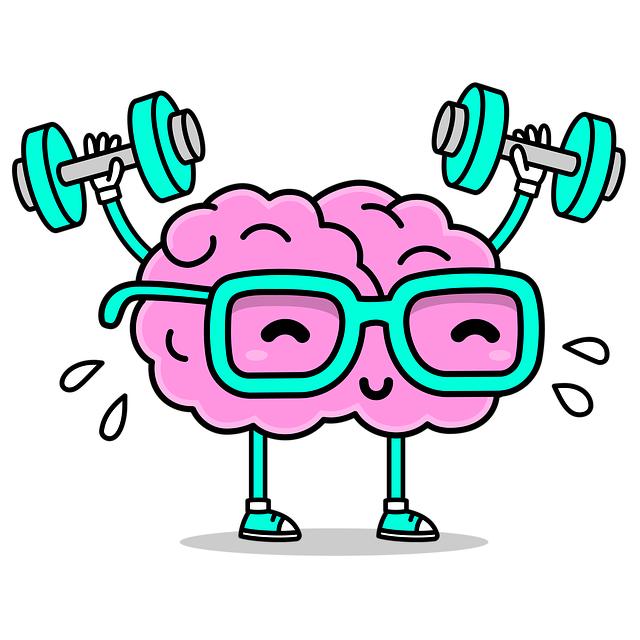As we journey through the golden years of life, maintaining our health becomes a cornerstone of living fully and independently. While aging brings its own set of challenges, understanding and preventing common senior health problems can empower us to enjoy our later years with vitality and grace. This guide aims to equip you with practical strategies and compassionate advice to safeguard your well-being and tackle the health issues that often accompany aging. By focusing on proactive measures, you can enhance your quality of life and continue to embrace each day with confidence and resilience. Whether you’re a senior yourself or a caregiver for a loved one, these insights will help you navigate the path to healthier aging with empathy and understanding.
Recognizing Early Signs and Symptoms to Take Proactive Measures
Understanding the early indicators of health issues is vital for seniors to maintain their quality of life. By identifying these signs early, it’s possible to address potential problems before they become severe. Some common symptoms to watch out for include sudden weight loss, unexplained fatigue, and persistent pain. These can be indicative of underlying conditions that require medical attention.
- Weight Changes: Sudden weight loss or gain can signal health issues such as diabetes or thyroid problems.
- Fatigue: Constant tiredness might be a sign of anemia, depression, or heart disease.
- Persistent Pain: Ongoing pain, particularly in the joints or muscles, could indicate arthritis or other chronic conditions.
Regular check-ups are crucial, as they help in the early detection of diseases. It’s also beneficial to keep a record of any new symptoms and share them with healthcare providers. Below is a table summarizing some key symptoms and the potential health issues they might indicate:
| Symptom | Possible Health Issues |
|---|---|
| Weight Loss | Diabetes, Cancer |
| Fatigue | Anemia, Depression |
| Persistent Pain | Arthritis, Osteoporosis |
By being attentive to these signs and maintaining open communication with healthcare providers, seniors can take proactive steps to prevent the escalation of common health problems.

Nurturing Mental Well-being Through Social Engagement and Cognitive Activities
Engaging in social and cognitive activities is essential for maintaining mental well-being among seniors. These activities not only stimulate the mind but also provide emotional satisfaction. Consider joining a community club or engaging in regular group activities. Social engagement can include:
- Participating in local events or meet-ups.
- Volunteering for community services.
- Joining book clubs or discussion groups.
On the cognitive side, keeping the brain active can significantly reduce the risk of mental decline. Encourage participation in activities that challenge the mind. Some effective cognitive activities are:
- Solving puzzles and playing strategy games.
- Learning a new language or musical instrument.
- Engaging in creative writing or art projects.
| Activity Type | Benefits |
|---|---|
| Social Engagement | Reduces feelings of loneliness and depression |
| Cognitive Activities | Enhances memory and cognitive functions |

Crafting a Balanced Diet to Support Aging Bodies and Boost Immunity
As we age, our bodies undergo numerous changes that require adjustments in our dietary habits. Embracing a well-rounded diet is essential to maintaining vitality and strengthening our immune systems. Prioritize incorporating a variety of colorful fruits and vegetables, lean proteins, and whole grains into your daily meals. These foods are rich in essential vitamins and minerals that are crucial for optimal health.
- Fruits & Vegetables: Aim for a rainbow on your plate. Think spinach, carrots, blueberries, and bell peppers.
- Lean Proteins: Include sources like chicken, fish, beans, and tofu to support muscle maintenance.
- Whole Grains: Choose whole wheat bread, brown rice, and quinoa for sustained energy and fiber.
Hydration is another key component often overlooked. Seniors should aim to drink at least 8 cups of water daily to support digestion and circulation. Moreover, consider foods high in omega-3 fatty acids, such as salmon or walnuts, which are known for their anti-inflammatory properties and can aid in preventing heart-related issues.
| Nutrient | Benefit | Food Source |
|---|---|---|
| Vitamin C | Boosts immunity | Oranges, strawberries |
| Calcium | Supports bone health | Dairy, leafy greens |
| Fiber | Aids digestion | Whole grains, beans |

Incorporating Regular Physical Activity for Enhanced Mobility and Strength
Embracing a routine that includes consistent physical activity can work wonders for maintaining and improving mobility and strength, especially in the later years of life. As we age, staying active becomes crucial not only for physical health but also for mental well-being. Simple exercises like walking, stretching, and light weight training can significantly enhance your quality of life.
- Walking: A low-impact exercise that boosts cardiovascular health and strengthens leg muscles.
- Stretching: Helps maintain flexibility, reducing the risk of injuries and enhancing range of motion.
- Light Weight Training: Builds muscle strength and bone density, vital for daily tasks.
Creating a balanced routine can be simplified by focusing on a few key areas. Consider incorporating exercises that target different aspects of fitness:
| Exercise Type | Benefits |
|---|---|
| Cardio | Improves heart health and stamina |
| Strength Training | Increases muscle mass and bone strength |
| Flexibility | Enhances mobility and reduces stiffness |
Adopting these activities not only enhances physical abilities but also instills a sense of accomplishment and independence. Always remember to consult with a healthcare professional before starting any new exercise routine to ensure it’s safe and suitable for your individual health needs.








































